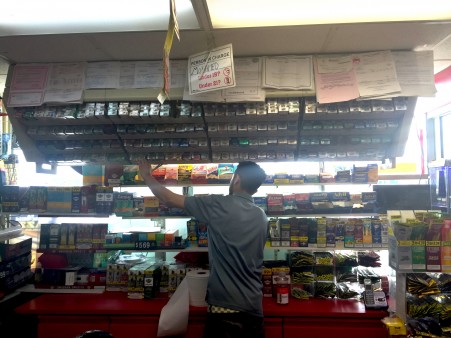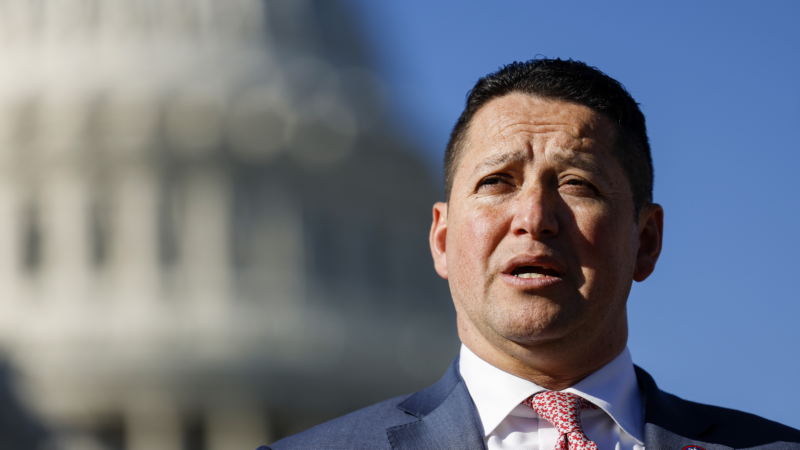Are Cigarette Taxes A Good Idea For Alabama?
The Alabama Legislature is running out of days this session. Today’s the last day that any new revenue raising measure can be introduced and still stand a chance of passing during regular session. And there’s still disagreement on how to fill the state’s more than $250 million deficit.
One idea: cigarette taxes. Governor Robert Bentley’s proposed revenue package relies heavily on an 82 cent tax increase per pack.
But law makers haven’t seriously considered it.
Representative Patricia Todd of Birmingham has proposed raising the cigarette tax by a quarter. Her bill has moved out of committee and awaits a vote in the House.
Likelihood of passing aside, are cigarette taxes a good way to balance a state’s budget?
WBHM’s Ashley Cleek consulted some experts on tax policy and cigarette sales to find out.
Mohamed Alwageeh, or “Moe” as most folks call him, runs a Shell station off 20/59 in Birmingham’s Norwood neighborhood. He’s open 24 hours and it’s always busy, especially around 5 pm.
It looks like your typical gas station, but the sound of the cash register stands out. Every time someone pumps gas it pings like an arcade game.
But people don’t stop by for the ambiance, Moe says when they come, they mostly buy cigarettes. “The biggest thing we sell in the store is cigarettes,” Moe says while quickly handing someone change. “Like 85 percent [of customers], they smoke cigarettes.”
Moe estimates he sells 100 cartons or 2,000 packs of cigarettes a week.
His cheapest pack cost $4.15; the most expensive is around $7.20.
So what does Moe think of the possibility of increased cigarette taxes? Under the governor’s proposal, his cheapest pack would be about 5 dollars.
“They are not going to pay that much for it,” Moe admits.
Bentley’s proposed tax hike would make packs in Alabama more expensive than in Tennessee, Mississippi, and Georgia.
Norton Francis, a senior research associate at the Tax Policy Center in Washington D.C., says that when the price of cigarettes gets too high, people cross the border.
“Particularly the combination of not having a lottery,” Francis compares Alabama to other states, “if you increase the [tax on] cigarettes, people that are going across the state to buy lottery tickets may be the same people that would be buying cigarettes out of state.”
So if people buy cigarettes in Columbus instead of Phenix City, in the long run, that would mean less revenue for Alabama. Plus over 300 cities in the state and dozens of counties levy their own taxes on cigarettes.
Beyond that, Francis warns cigarette taxes aren’t a permanent fix.
“It’s a declining source and over time, federal and state level policies will operate to reduce the demand for cigarettes,” Francis explains, “and that’s going to reduce revenue.”
Studies show the number of smokers in Alabama is slowly declining. Fewer smokers would mean less tax dollars.
While it might not fix the general fund’s shortfall, a tax could address a public health problem. Earlier this year, Governor Bentley noted that cigarettes “pose a serious financial burden to the resources of state government.”
Representative Patricia Todd says that’s an even better reason to increase Alabama’s cigarette taxes.
“At some point you have to pass good policy cause it’s the right thing to do,” Todd explains. “It saves lives, raises money, you also lower the cost of Medicaid when you decrease smoking. So we save money and make money.”
Back at the gas station, a customer buys one Black and Mild cigarillo.
“What’s going on, man? That be it?” Moe asks.
The customer doesn’t have two cents, and Moe says that’s no big deal.
“You don’t have to worry about two cents,” Moe jokes.
But soon, those two cents might seem a lot more valuable.
GOP Rep. Tony Gonzales faces pressure from party over affair allegations
The Texas Republican is facing calls from fellow House Republicans to resign, following allegations of an affair with a staffer who later died by suicide.
In pictures: Winter storm slams the east coast
Photos of cities in Connecticut, New York, New Jersey and Massachusetts as they cope with a powerful winter storm.
The FDA creates a quicker path for gene therapies
The Food and Drug Administration aims to evaluate treatments for rare diseases based on plausible evidence that they would work — without requiring a clinical trial first.
BAFTAs apologize after guest with Tourette syndrome uses racial slur during ceremony
A man with Tourette syndrome shouted a racial slur and other offensive remarks during the BAFTA awards ceremony Sunday. The BBC did not edit out his outbursts in its delayed broadcast.
‘Everything was in pieces:’ Lindsey Vonn describes grueling surgery on broken leg
In a recent video, the Olympic skier credits her surgeon with saving her leg from potential amputation.
A new lawsuit alleges DHS illegally tracked and intimidated observers
Observers watching federal immigration enforcement in Maine who were told by agents they were "domestic terrorists" and would be added to a "database" or "watchlist" are now part of a new federal class action lawsuit.








